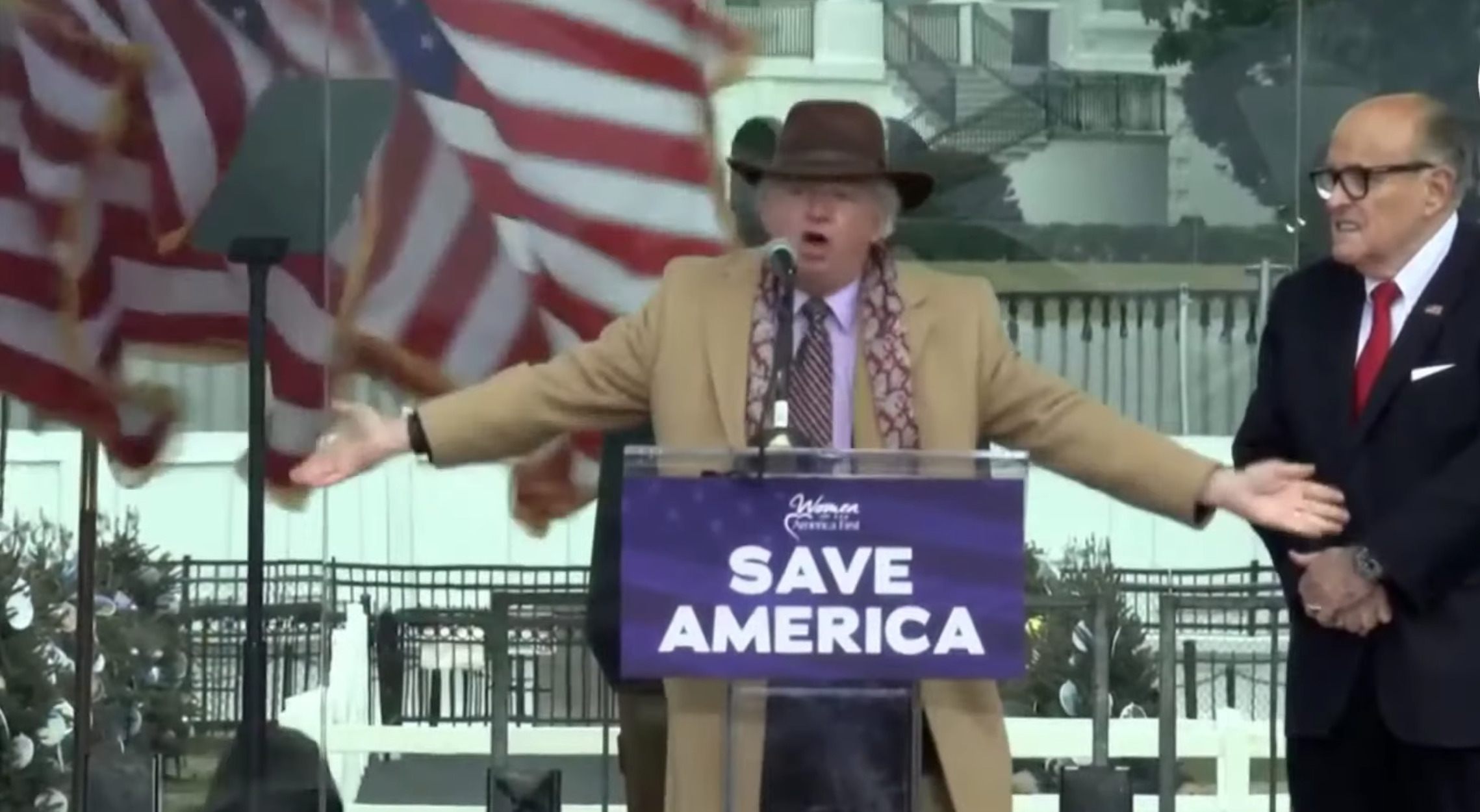Attorney John Eastman, the architect of former President Trump’s failed attempt to have Vice President Mike Pence block the certification of the 2020 presidential election results, is looking for donations — apparently targeting Christians in particular — to fund his legal fights, including his lawsuit against the University of Colorado (CU) and the state of Colorado
Eastman has raised $172,500 from nearly 2500 donors, as well as registering 268 shares of his fundraising page and over 900 prayers sent to his campaign. The original goal set for the fundraiser was $150,000, and that amount was reached in just over two weeks. The goal has since been increased to $200,000.
Eastman’s online plea stipulates that the “funds from this campaign will be received by John Eastman,” and that they “will be used to pay for his legal team (responding to January 6 Committee and bar complaints, as well as bringing suits against the University of Colorado and others for violations of constitutional rights).”
Using an online platform called “GiveSendGo,” self-described as “#1 Free Christian Crowdfunding Site,” Eastman has posted his fundraising website, designating his cause as a “Legal Defense Fund” despite Eastman’s roles as plaintiff, respondent, or counsel in all his high profile lawsuits and complaints, both present and pending. Eastman is not technically a defendant in any of those cases.

As a plaintiff, Eastman has announced his intent to sue the University of Colorado for allegedly violating his First Amendment rights when, as the visiting scholar on conservative thought and policy at Colorado University’s Bruce Benson Center for the Study of Western Civilization, he was stripped of his public duties following his participation in the Jan. 6 rally in support of Trump’s Big Lie claims that the election was stolen through fraud.
He is seeking $1.9 million in damages, also alleging the university breached his contract, caused him reputational harm, and libeled and slandered him.
Also as plaintiff, Eastman’s attempt to block subpoenas from the U.S. House select committee investigating Jan. 6 failed when a federal judge ruled against him. He had filed a complaint to block a subpoena for documents from Chapman University, his former employer.
In a negotiated settlement, following the submission of a Chapman faculty petition calling for his ouster, Eastman retired from the university a week after the Capitol riots.
In emails from his Chapman account, Eastman had discussed matters relevant to the 2020 election. His rationale for blocking the subpoenas rests on arguments of jurisdictional authority, client privilege, and confidentiality. The judge in that case ordered Eastman to cooperate with the select committee in identifying which documents are legally protected and which are enforceable by subpoena.
As a respondent, Eastman faces three ethics complaints filed with the California bar by various groups relating to his actions around the Jan. 6 “Stop the Steal Rally” and subsequent revelations about his involvement with blocking certification of the 2020 presidential electoral votes.
One of those complaints, filed in December and signed by 1,200 attorneys representing Lawyers Defending American Democracy, contends that Eastman “appears to have acted in concert with other attorneys, notably Rudolph W. Giuliani and Jeffrey C. Clark, in an effort to install Mr. Trump in the office of President of the United States for another four years notwithstanding the irrefutable fact that the people of the United States had chosen Joseph R. Biden to replace him,”
Giuliani’s license to practice law has been suspended in New York and the District of Columbia, for making “demonstrably false and misleading statement to courts, lawmakers and the public at large in his capacity as lawyer … in connection with Trump’s failed effort at reelection in 2020.”
As prospective counsel, Eastman has said he will represent the Colorado Republican Party, along with Republican National Committeeman and conservative radio host Randy Corporon, in a lawsuit to be filed as early as Friday against the state of Colorado, challenging the constitutionality of the state’s open primary statute, which voters approved in 2016 by referendum.
In his crowdfunding plea, Eastman does not directly specify this case as one which he would fund with donations from this fundraising effort, although it could fall under Eastman’s categorization of cases representing “violations of constitutional rights.”
The cost of this legal challenge has been raised by Republicans as a barrier to filing the legal challenge, but Eastman and Corporon have previously offered their legal services at a discounted rate in order to facilitate the filing. The Claremont Institute, a California think tank where Eastman is currently a senior fellow, has posted an online plea for donations to fund the lawsuit against Colorado,
Eastman did not immediately respond to an email request for comment regarding his plans for the CU lawsuit, whether other fundraising ventures — and how many — are active for funding these same cases, and whether he intends to fund the Colorado open primary lawsuit with donations from this particular drive.
This post will be updated with any comment received from Eastman.




